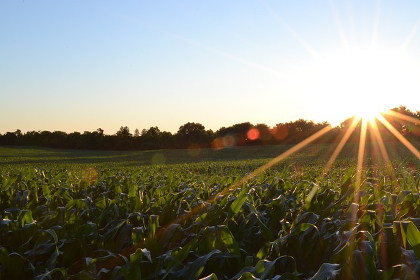
Farming Mega-Mergers Threaten Food Security, Say Campaigners
Until recently, six or seven global agri-food businesses competed with each other for a share of the world market for seeds and chemicals. But if EU and US regulators allow a series of mega-mergers to take place, within months just three companies will be left in control of nearly 60% of the world’s seeds, nearly 70% of the chemicals and pesticides needed to grow food and nearly all of the world’s GM crop genetic traits.
September 26, 2016 | Source: The Guardian | by John Vidal
Deals would put the majority of seeds, chemicals and GM traits in the hands of three companies, deepening poverty for small-scale farmers.
When an Indian farmer plants his cotton crop, there’s at least a 75% chance the seeds have been been bought from a company owned by Monsanto. If a Latin American farmer sprays insecticide on her genetically engineered soya beans, the chemical is more than likely to have been provided by German chemical and drugs company Bayer or by US firm Dupont.
And when African farmers add chemicals to their maize fields or plant it’s odds-on that they have come from Swiss company Syngenta.
Until recently, six or seven global agri-food businesses competed with each other for a share of the world market for seeds and chemicals. But if EU and US regulators allow a series of mega-mergers to take place, within months just three companies will be left in control of nearly 60% of the world’s seeds, nearly 70% of the chemicals and pesticides needed to grow food and nearly all of the world’s GM crop genetic traits.
The mega-deals now being scrutinised by governments and the EU include the $66bn (£51bn) agreed takeover of US seed, chemical and biotech company Monsanto by drug and German gene firm Bayer; US chemical company Dow’s intention to merge with chemical conglomerate rival DuPont; and ChemChina’s plan to buy massive Swiss seed and gene group Syngenta for $43bn (£33bn).
Include the mergers of several of the world’s biggest fertiliser companies, and moves by the world’s largest farm equipment companies to invest in big data, robotics and farm surveillance technologies, and the consolidations are seen as taking global agriculture into a new era.
Alarmed EU, US and Latin American consumer, environment and anti-trust groups this week claimed that the three mega deals have the potential to concentrate political and financial power dangerously and could force more countries to adopt a single model of farming that excludes or impoverishes small farmers.
